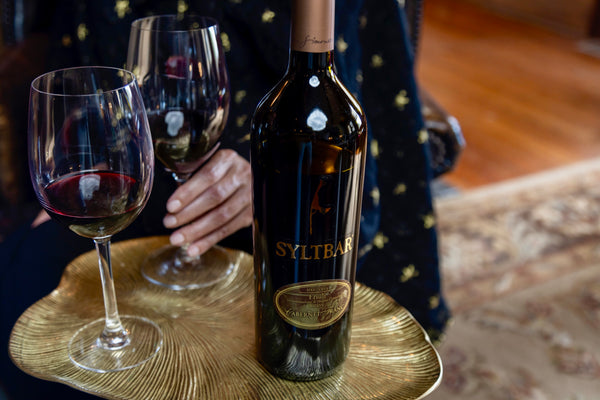Sulfites Unveiled: Investigating Brut Prosecco's Secrets
Discover the perfect balance of flavor and preservation, and uncork the secrets behind sulfites in Brut Prosecco. Join us on a sparkling journey through the vineyards, sip by sip, and toast to a deeper understanding of the bubbly delight that graces our glasses.
What Are Sulfites, and Why Are They in Wine?
Sulfites are a group of compounds that contain sulfur, commonly used in winemaking for their preservative properties. These compounds, both natural and added, play a crucial role in preventing oxidation and bacterial spoilage, ensuring the wine's stability and longevity. Natural sulfites are produced during fermentation, but winemakers often add extra sulfites to enhance preservation, known for their freshness and fruity notes.
In the winemaking process, natural sulfites are a byproduct of yeast metabolism, helping to maintain the wine's stability and prevent unwanted microbial growth. The small amounts of sulfites naturally present in all wines act as antioxidants, protecting against oxidation and preserving the wine's color, aroma, and flavor. Without sulfites, wines would be more susceptible to spoilage and deterioration over time.
So, as you can see, sulfites are necessary to a certain extent… But there is such a thing as going a little overboard with added sulfites.

The Dark Side of Added Sulfites
While natural sulfites are essential, winemakers often choose to add additional sulfites for various reasons. These can include protecting against oxidation during the winemaking process, ensuring stability during transportation and maintaining the wine's quality on the shelf, both of which allow for larger distribution over a longer period of time. The decision to add sulfites is a delicate balancing act, as too much can result in an overpowering sulfur aroma and potential health concerns.
Despite their necessity, added sulfites have garnered a reputation for triggering adverse reactions in some individuals. While sulfite sensitivity is relatively rare, those who are sensitive may experience symptoms such as headaches, skin rashes, or respiratory issues after consuming wines with higher sulfite levels.
For this reason, wine drinkers are increasingly exploring low-sulfite options from producers that practice more natural and minimalist winemaking.
Finding the Right Low-Sulfite Brut Prosecco
Brut Prosecco, with its lively bubbles and crisp character, is no stranger to the sulfite conversation. The style's inherent freshness and fruitiness often necessitate a delicate touch — and to some producers, that means adding extra sulfites. For SYLTBAR Premium Brut Prosecco, nicknamed Mr, that is never the case. The average amount of sulfites in SYLTBAR is around 25ppm, whereas the average amount in commercial wines is about 150ppm! This is the case for all of the SYLTBAR wines too — our Sparkling Rosé, nicknamed Mrs, as well as our four fine wines: Pinot Grigio “White Linen”, Friulano “Silk”, Cabernet Franc “Cashmere” and Ramato “Junior”.

Sulfites in wine range from about 5 parts per million (ppm) to about 250ppm/L. The legal limit in the U.S. is 350 ppm g/L. Our SYLTBAR producers will alway remain authentic and transparent with their production, which is why you will always see markings on each bottle with the filling date. Understanding the sulfite levels in Prosecco becomes crucial for consumers seeking wines that align with their preferences and sensitivities.
In the world of Prosecco, sulfites play a vital role in preserving the essence of this beloved sparkling wine. Whether you're a wine enthusiast or someone curious about the science behind the bubbles, navigating the sulfite landscape offers insights into the delicate art of winemaking. As the industry continues to evolve, finding a balance between tradition and innovation ensures that each sip of Prosecco remains a sparkling experience for all.
Remember, natural sulfites are normal and necessary in your Brut Prosecco and other preferred wines — but added sulfites can have negative consequences for your health, especially when it comes to how you feel after drinking. When you want to drink your Prosecco and feel as fresh as the bubbles within your glass, it’s safe to stick to low-sulfite options, like SYLTBAR.

Shop for low-sulfite Brut Prosecco, Sparkling Rosé and fine wines at syltbar.com or check out our store locator to find a retailer near you that carries our wine.
Explore more
Share this
Featured product
Featured product
It is time for SYLTBAR order now!
Join SYLTBAR mailing list
Sign up to receive delightful emails with deals, tips & more
or text CONNECT to 1-833 461-3379
MIGHT TAKE UP TO A MINUTE TO RECEIVE CODE TEXT! By texting CONNECT to us, you consent to receive marketing text messages through an automatic telephone dialing system at the number provided. Consent is not a condition to purchase. Text STOP to unsubscribe or HELP for help. Msg and data rates may apply. Read our privacy policy
SYLTBAR
Shop

*Total calories based on glucose and not by scientific testing. This statement has not been evaluated by the Food and Drug Administration. This product is not intended to diagnose, treat, cure, or prevent any disease.











